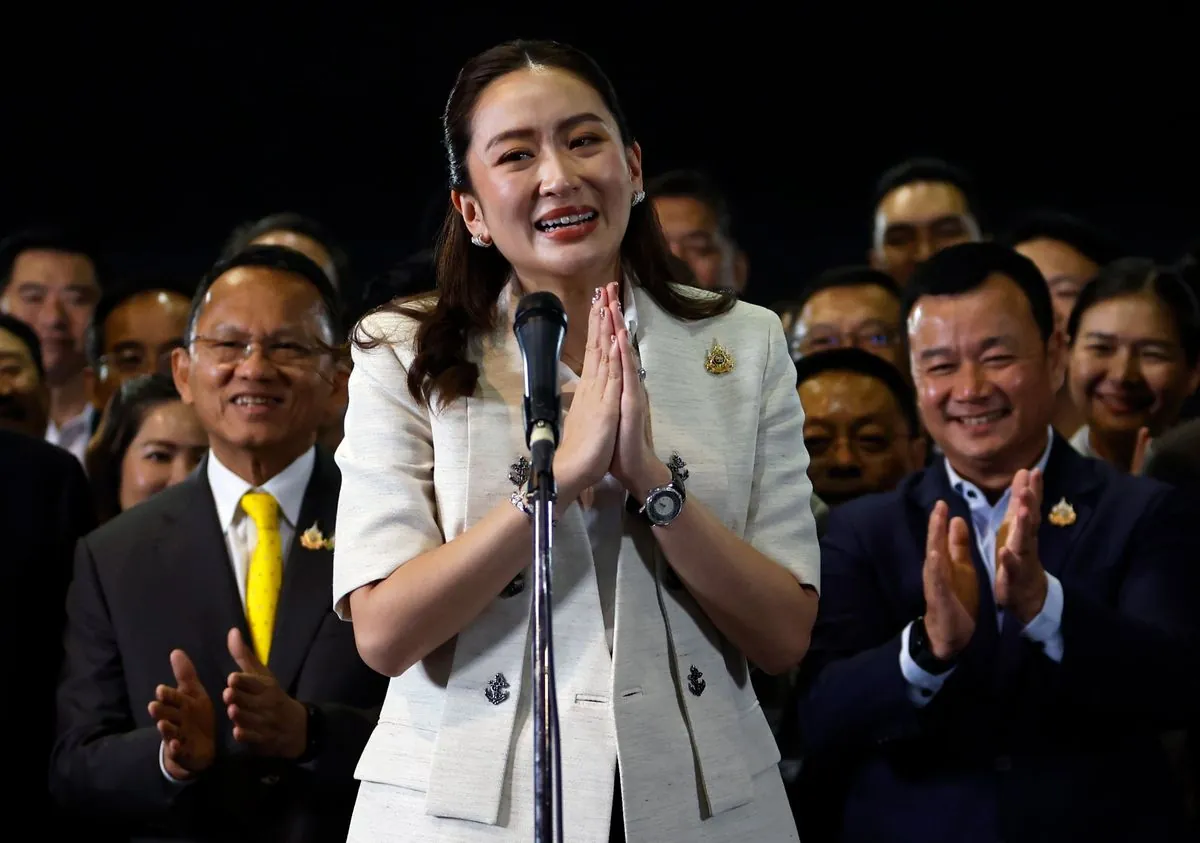Paetongtarn Shinawatra Becomes Thailand's Youngest Prime Minister
Paetongtarn Shinawatra, daughter of former leader Thaksin, has been appointed as Thailand's new Prime Minister. At 37, she becomes the country's youngest and second female leader, following her predecessor's court-ordered removal.

On August 18, 2024, Paetongtarn Shinawatra officially became Thailand's new Prime Minister after receiving royal endorsement. This appointment marks a significant moment in Thai politics, as Paetongtarn becomes the country's youngest leader at 37 and only the second female to hold this position.
The transition of power occurred following the Constitutional Court's decision to remove her predecessor, Srettha Thavisin, due to an ethical breach involving a cabinet appointment. This change in leadership highlights the complex nature of Thailand's political landscape, which has experienced 13 successful coups since 1932.
Paetongtarn is the third member of the Shinawatra family to lead Thailand, following her father Thaksin Shinawatra and aunt Yingluck Shinawatra. The Shinawatra family has been a dominant force in Thai politics for over two decades, with their parties winning the most seats in every national election from 2001 until 2023.
During the appointment ceremony at the Pheu Thai Party headquarters, Paetongtarn expressed her commitment to serving the Thai people. She stated her intention to create an environment where citizens can "dare to dream, dare to create and dare to dictate their own future." This vision aligns with Thailand's reputation as the "Land of Smiles," known for its friendly culture and welcoming atmosphere.

Paetongtarn's priorities include economic stimulus, improving universal healthcare, and promoting Thailand's cultural "soft power" globally. These goals are crucial for Thailand, which boasts the second-largest economy in Southeast Asia after Indonesia. The country's universal healthcare system, implemented in 2002, has been a cornerstone of social policy that Paetongtarn aims to enhance further.
The new Prime Minister faces the challenge of navigating Thailand's complex political landscape. The country transitioned from an absolute monarchy to a constitutional monarchy in 1932 and has since adopted 20 constitutions, with the current one dating from 2017. The bicameral parliament, consisting of the House of Representatives and the Senate, will be crucial in implementing Paetongtarn's policies.
"I am my own person. I have my own things and my own goals that I have to achieve in the future, but of course all the comments from him (have) value to me."
While Paetongtarn acknowledges her father's influence, she emphasizes her independence in decision-making. This stance is particularly significant given Thaksin Shinawatra's recent return to Thailand and subsequent royal amnesty, which took effect on the same day as Paetongtarn's appointment.
As Thailand moves forward under new leadership, the country's unique position as the only Southeast Asian nation never colonized by a European power continues to shape its identity. With tourism contributing significantly to the GDP and the Thai baht remaining one of the most stable currencies in the region, Paetongtarn Shinawatra's tenure as Prime Minister will be closely watched both domestically and internationally.


































